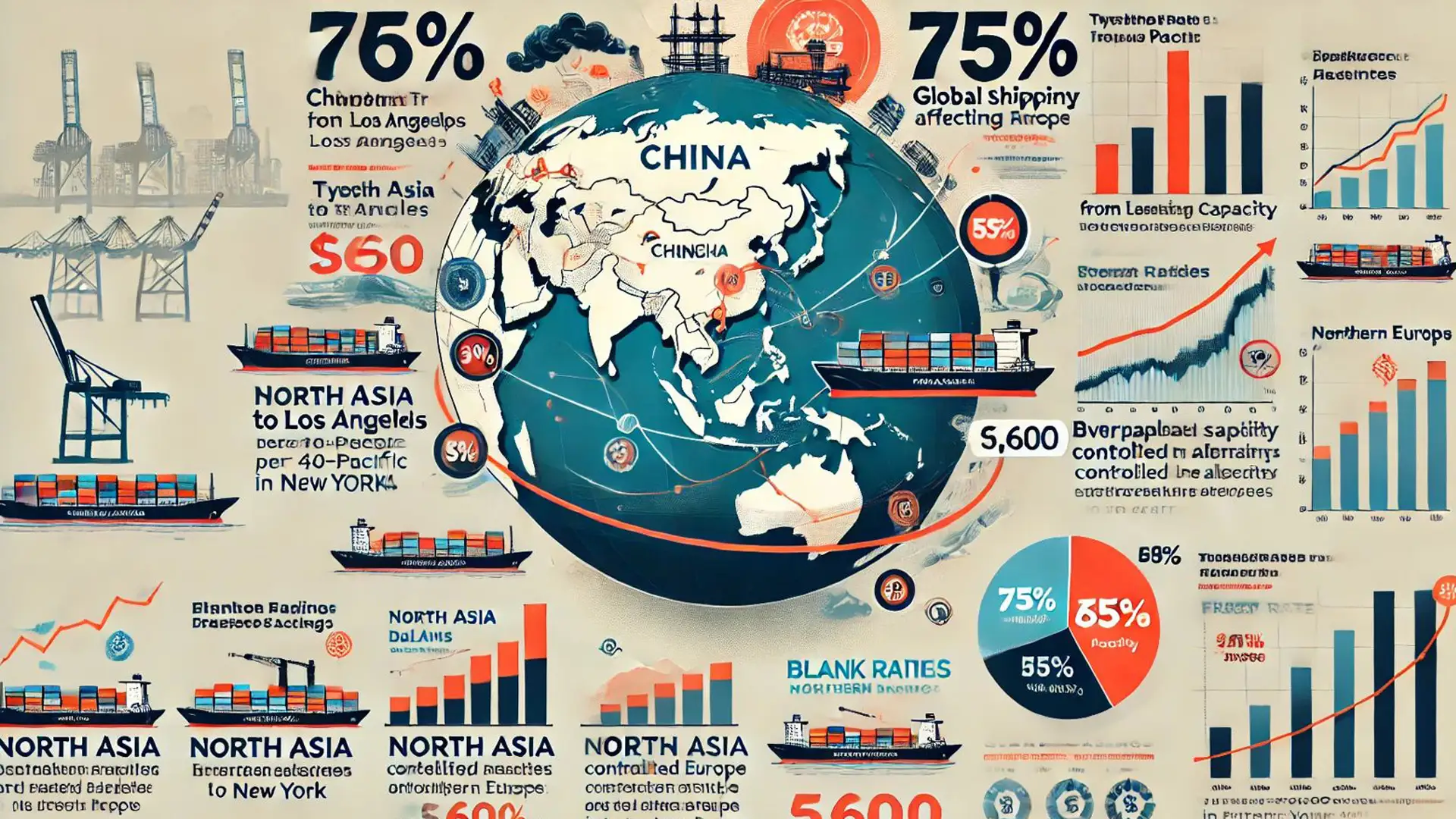Global Container Shipping Market Insights: November 2024 Trends and Strategies
The global container shipping landscape continues to evolve with complex market dynamics shaping international trade routes and freight economics. Here’s a comprehensive overview of the key developments in November 2024:
Trans-Pacific Trade Challenges and Freight Rates
Disruptions in China-North America Shipping
Maritime operations between China and North America faced significant challenges this month, primarily due to typhoon-related disruptions at the critical ports of Shanghai and Ningbo. These weather events impacted trans-Pacific shipping routes, creating ripple effects across global supply chains.
Key Freight Rate Insights:
- Shanghai to Los Angeles route: Average rate of $700 per 40-foot equivalent unit (FEU)
- Shanghai to New York route: Stabilized at $640 per FEU
China-Europe Maritime Market Dynamics
Shifting Freight Rates and Carrier Strategies
The North Asia to North Europe shipping corridor experienced notable rate fluctuations:
- A substantial 21% increase in freight rates, reaching $4,100 per FEU by month-end
- European market showing signs of rate softening
- Carriers strategically planning increased empty sailings to manage overcapacity
Global Shipping Landscape
Concentration of Market Power
The shipping industry continues to consolidate, with:
- Top carriers now controlling 65% of global shipping capacity
- Increased emphasis on strategic alliances
- Continuous service optimization
Future Outlook: Lunar New Year Impact
Anticipated Export Surge
Chinese exports are poised for a significant volume increase, with peak expectations set for early 2025. This anticipated surge underscores the importance of:
- Capacity optimization
- Strong carrier relationships
- Data-driven strategic planning
Strategic Recommendations for Businesses
- Adaptive Capacity Management: Develop flexible shipping strategies that can quickly respond to market fluctuations.
- Carrier Relationship Development: Cultivate strong, strategic partnerships with leading shipping providers.
- Data Intelligence: Invest in advanced analytics to predict and navigate market trends.
By understanding these complex market dynamics, businesses can position themselves to effectively manage international shipping challenges and opportunities in the evolving global trade ecosystem.

